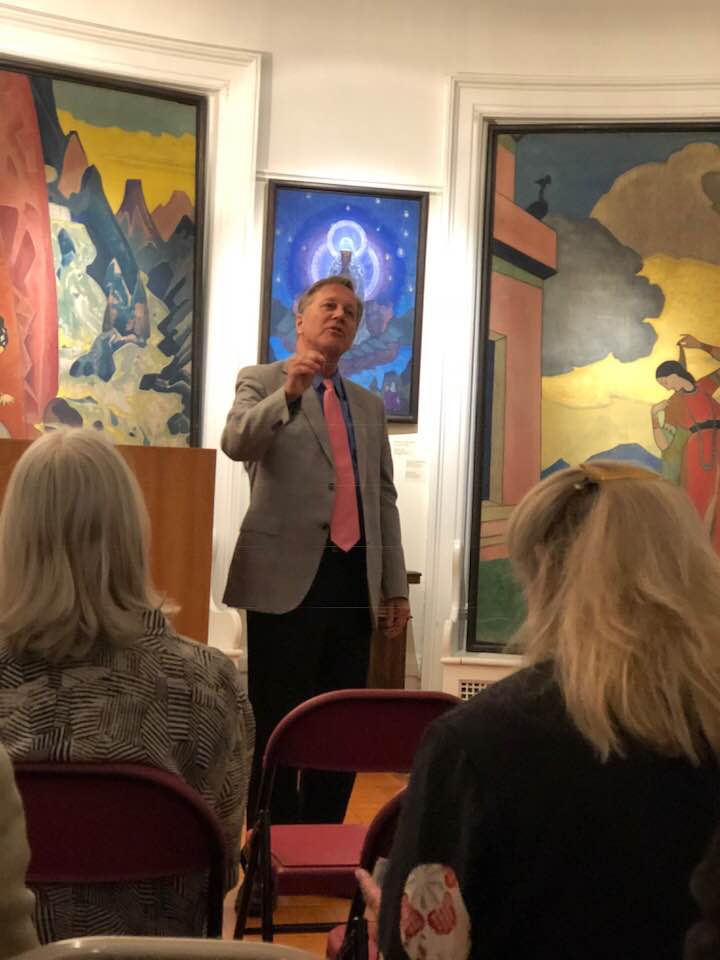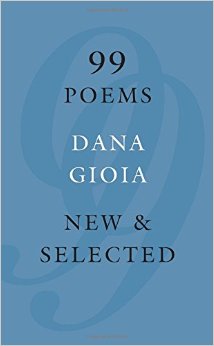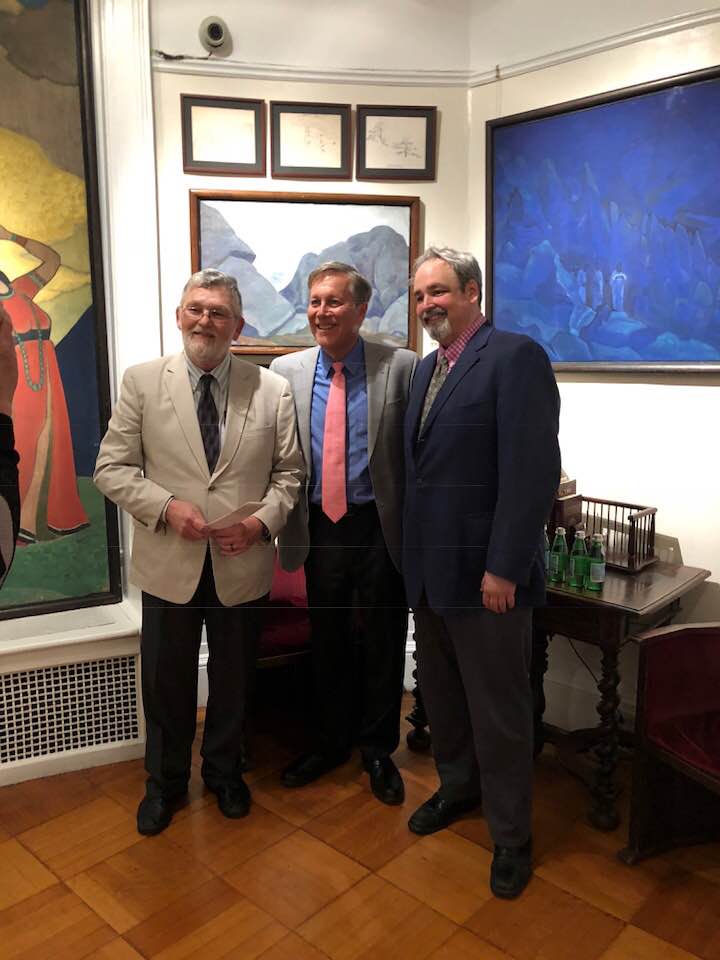A poetry prize for Dana Gioia, and a reading in an “otherworldly setting”
Saturday, May 19th, 2018

Dana Gioia reads his poems at the Roerich Museum
Dana Gioia has won so many honors, awards, positions, distinctions, that it’s hard to keep track of them, but we can begin with his current appointment as poet laureate of California, and his earlier appointment as National Endowment of the Arts chair. As of yesterday, he has a new one: he was awarded this year’s Poets’ Prize for 99 Poems: New & Selected (Graywolf). The ceremony took place in New York City’s Nicholas Roerich Museum.

The winning book
“Dana has won many honors, but he has never won one of the ‘major’ poetry prizes,” said R.S. Gwynn, thinking of the Pulitzer, the National Book Award, the Bollingen Prize. “His well known role as an advocate for the arts has perhaps overshadowed his excellence as a poet. Our award is not, however, for lifetime achievement or extra-literary work; it is an award, pure and simple, for what the members of the committee consider the best poetry collection of the year.” (Sam Gwynn is stepping down after ten years as chair of the event. He will be replaced by poet Robert Archambeau, with Marc Vincenz, editor of Plume and MadHat Press, stepping in as the new co-chair. have stepped forward to keep the prize alive.”
A committee of 20 poets selects the winner of the $3,000 prize, which is administered by Lake Forest College. The award is offered annually for the best book of verse published by a living American poet two years prior to the award year. The $3,000 annual prize is donated by a committee of about 20 American poets, who each nominate two books and who also serve as judges. Previous winners include A.E. Stallings, X.J. Kennedy, Marilyn Nelson, and Adrienne Rich. In fact, Dana shared the award with Rich way back in 1992.
I cannot find my own copy of 99 Poems to search for a poem – however, I do have a broadsheet of this one, which is included in the volume. It’s among my personal favorites, and somehow fits the Roerich Museum:
The Stars Now Rearrange Themselves
The stars now rearrange themselves above you
but to no effect. Tonight,
only for tonight, their powers lapse,
and you must look toward earth. There will be
no comets now, no pointing star
to lead you where you know you must go.
Look for smaller signs instead, the fine
disturbances of ordered things when suddenly
the rhythms of your expectation break
and in a moment’s pause another world
reveals itself behind the ordinary.
And one small detail out of place will be
enough to let you know: a missing ring,
a breath, a footfall or a sudden breeze,
a crack of light beneath a darkened door.
The verdict from one of the poets attending the event, Susan de Sola Rodstein: “Wonderful event in an otherworldly setting, with touching tributes to Colette Inez and Dick Allen, and memorable readings by prize-winner Dana Gioia and finalists” – the finalists were James May and John Foy. Susan also took the photos above and below.

Sam Gwynn, Dana Gioia, and Robert Archambeau








